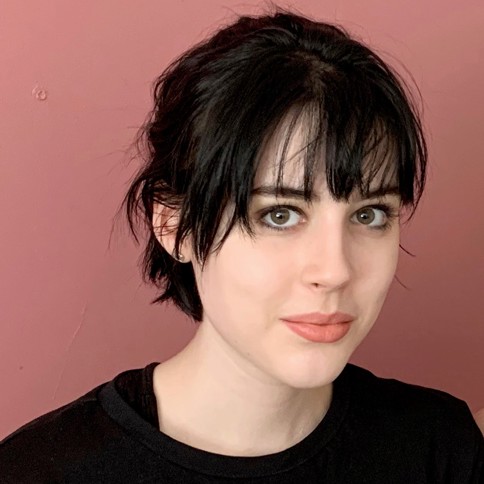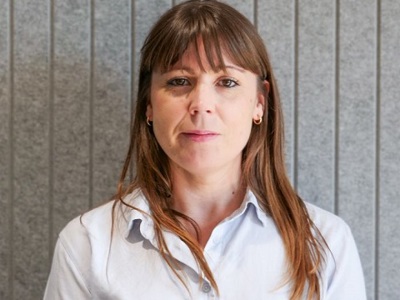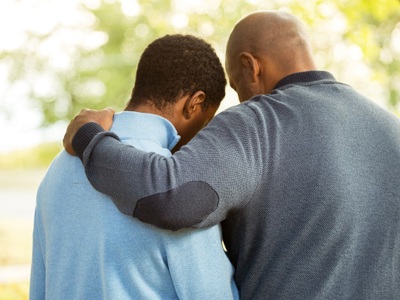Zoe Lyalle's family calls for better support for young people with autism.
The family of 18-year-old Zoe Lyalle from Reading have expressed their disappointment following her inquest which concluded there were no failings in the care she received by her local mental health team and her specialist school. The inquest into Zoe’s death, held at Berkshire Coroner’s Court reached a conclusion of suicide on Thursday 19 May 2022.
Posted on 23 May 2022
Zoe died on 26 May 2020 at home in Reading. She had a diagnosis of autism spectrum disorder (ASD) and suffered with depression, anxiety and disordered eating.
Assistant Coroner Ian Wade was invited by Zoe’s family to consider whether the actions of both Berkshire Healthcare NHS Foundation Trust and her specialist school, Catch 22 College, caused or contributed to her death. The coroner did not find that any actions by the school caused or contributed to Zoe’s death. The coroner identified missed opportunities in the care provided by Berkshire Healthcare NHS Foundation Trust, but found that these did not cause or contribute to her death.
Despite the coroner’s findings Zoe’s family has said that they hope lessons will be learned by both the trust’s mental health services and the school in how to deal with young people with autistic spectrum disorder (ASD) and the transition of services for children and adolescents to adults.

Zoe Lyalle.
The inquest, at Berkshire Coroner’s Court, heard Zoe had been under the care of the Child & Adolescent Mental Health Services (CAMHS) at Berkshire Healthcare NHS Foundation Trust from the age of 14. She had a history of self-harm and had attempted suicide on several occasions.
Zoe had regular appointments with her CAMHS psychiatrist and had received psychological therapy which she found helpful. Shortly after her 18th birthday her care was transferred from CAMHS to the adult Community Mental Health Services (CMHT). Her CAMHS psychiatrist told the coroner’s court that transition can be very intimidating and anxiety-provoking for patients and that risks are likely to increase at that time. She made it clear in the final CAMHS appointment that Zoe would need to continue to be seen by a CMHT psychiatrist.
In the months that followed, Zoe’s mental health declined significantly. She was appointed a care coordinator by CMHT who informed the inquest that at that time she did not have an understanding of how to communicate with people with autism. The family were concerned that she could not communicate with Zoe and therefore could not support her or meet her needs. The care coordinator should have developed a care plan, but did not.
On 15 January 2020, Zoe and her mother, Jean Eustace, attended an appointment with her care coordinator where Ms Eustace raised concerns about Zoe’s rapidly deteriorating mental health. She had been threatening to starve and dehydrate herself to death and was discussing other ways to end her life. Ms Eustace told the care coordinator that Zoe wasn’t showering or getting dressed, she was barely eating anything and her family considered it was unsafe to leave her in the house alone.
The care coordinator advised Zoe on breathing and relaxation techniques. The family had no confidence that the care coordinator grasped the urgency and seriousness of Zoe's situation. The care coordinator criticised Zoe for letting her mother speak for her, which showed a complete lack of understanding of Zoe’s communication difficulties caused by her autism. Two days after this appointment Zoe took steps to take her own life.
Zoe’s family told the inquest that following the transfer of her care to CMHT there were delays in her accessing services which contributed to this deterioration. Initially she was not referred to a psychiatrist, and did not see a community psychiatrist until 4 March 2020 - a gap of five months without community psychiatric input. During this period, Zoe’s health declined to the extent that an inpatient admission to Prospect Park Hospital was required.
In a written statement read to the court, Zoe’s GP Dr Shaw heavily criticised the Trust. He wrote that “the structure of mental health services seems to drive care in the opposite direction [to therapy] and is set up to deliver fragmented episodes of care delivered by two apparently isolated silos within the service with poor communication between the silos and no obvious acknowledgement of the need for a personal approach / continuity.”
Following the hospital admission, Zoe continued to be obsessed with calories and was eating very little. At the family’s request a new care coordinator was appointed in March 2020. However she and Zoe had only one face to face appointment on 17 March, after which she received support only via the telephone due to the Covid pandemic and UK lockdown. Zoe struggled to communicate over the phone due to her autism. Her condition continued to decline.
The coroner heard from Zoe’s family that they were concerned that changes at her school, Catch 22 college in Bracknell, had a huge impact on her mental health. Zoe started at the school in February 2017 and initially she seemed to do well there, she liked speaking to the staff and seeing the school’s therapy dog.
In September 2019 there was a change of focus at Catch 22, resulting in larger class sizes which Zoe found very stressful. In December 2019 the school sent the family a letter stating that Zoe's attendance was below their expected levels. This greatly upset Zoe as she felt that she was being treated as truant and that the staff did not understand or care about her mental health difficulties.
At the beginning of April 2020 the school closed due to the pandemic. At around the same time Zoe had started preparing for her GCSEs that summer and was working on mock exam papers. However, on 3 April 2020, Catch 22 sent an email to Ms Eustace informing her of their decision to withdraw Zoe from all exams due to her poor attendance. This decision was made unilaterally without any discussion with Zoe or her family. No advice or support was offered regarding when she may be able to sit the exams again in the future. Her family told the coroner that receiving this email was a massive trigger for Zoe, resulting in her losing all hope for the future and removing her sense of purpose.
Zoe’s family were in touch by phone with her care coordinator and the Crisis Team every few days during the spring of 2020 and believed that due to the pandemic this was all the support they could get at that point. It was only later they found out that a decision had been made to support Zoe this way, and that limited face to face time was provided to other CMHT patients during this period.
Zoe continued to regularly binge eat and vomit. She struggled to sleep and although she spoke to her care coordinator regularly she felt sad and hopeless and that nothing was going to change. She felt that no one wanted to or could help her.
Following the inquest Zoe’s family said:
“We are completely devastated by the loss of Zoe and feel utterly let down by the care and support offered to her by Berkshire Healthcare NHS Foundation Trust and Catch 22. Neither seemed to understand or take into account her communication needs caused by her autism. They treated Zoe as if she chose not to engage, when in reality she found it incredibly difficult to communicate, including talking on the phone or being in large classroom groups.
“It does not make sense to expect that a child with complex needs will suddenly be able to cope with a drop in support the moment they turn 18. Zoe was in crisis and needed support from both mental health services and her school to provide her with hope that life could be different for her in the future. Instead she felt that things would never change and that people were against her.
“We are very disappointed with the approach the coroner took during the inquest and believe Zoe deserved better. We are concerned there was a lack of willingness by the coroner to engage with the detail of the evidence before him, and that he overlooked failures in Zoe’s care that were identified as learning points in the Trust’s own Serious Incident Review. We hope that despite the coroner’s findings, the Trust will reflect on the way in which they handled Zoe’s care and better support young patients and their families in the future.”
Beatrice Morgan, solicitor at law firm Leigh Day added:
"Much more care needs to be taken to ensure that the transition from child to adult services does not have a further detrimental impact on a young person’s mental health, and that support continues rather than grinding to a halt. Zoe required input from people who had the skills to understand her difficulties with communication. A person-centred approach to mental health care and educational support for adolescents with autism is crucial and we hope that lessons will be learned from Zoe’s case."
The family are represented by solicitor Beatrice Morgan of Leigh Day and barrister Oliver Lewis of Doughty Street.
Media guidance for reporting suicide can be found on the Samaritans website. The Samaritans can be contacted by calling 116 123 or email jo@samaritans.org




